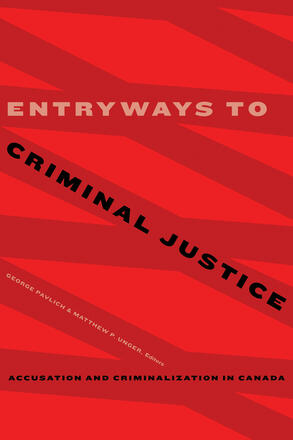
Entryways to Criminal Justice
Accusation and Criminalization in Canada
Description
How do societies decide whom to criminalize? What does it mean to accuse someone of being an offender? Entryways to Criminal Justice analyzes the thresholds that distinguish law-abiding individuals from those who may be criminalized. Contributors to the volume adopt social, historical, cultural, and political perspectives to explore the accusatory process that place persons in contact with the law. Emphasizing the gateways to criminal justice, truth-telling, and overcriminalization, the authors provide important insights into often overlooked practices that admit persons to criminal justice. It is essential reading for scholars, students, and policy makers in the fields of socio-legal studies, sociology, criminology, law and society, and post/colonial studies.
Contributors: Dale A. Ballucci, Martin A. French, Aaron Henry, Bryan R. Hogeveen, Dawn Moore, George Pavlich, Marcus A. Sibley, Rashmee Singh, Amy Swiffen, Matthew P. Unger, Elise Wohlbold, Andrew Woolford